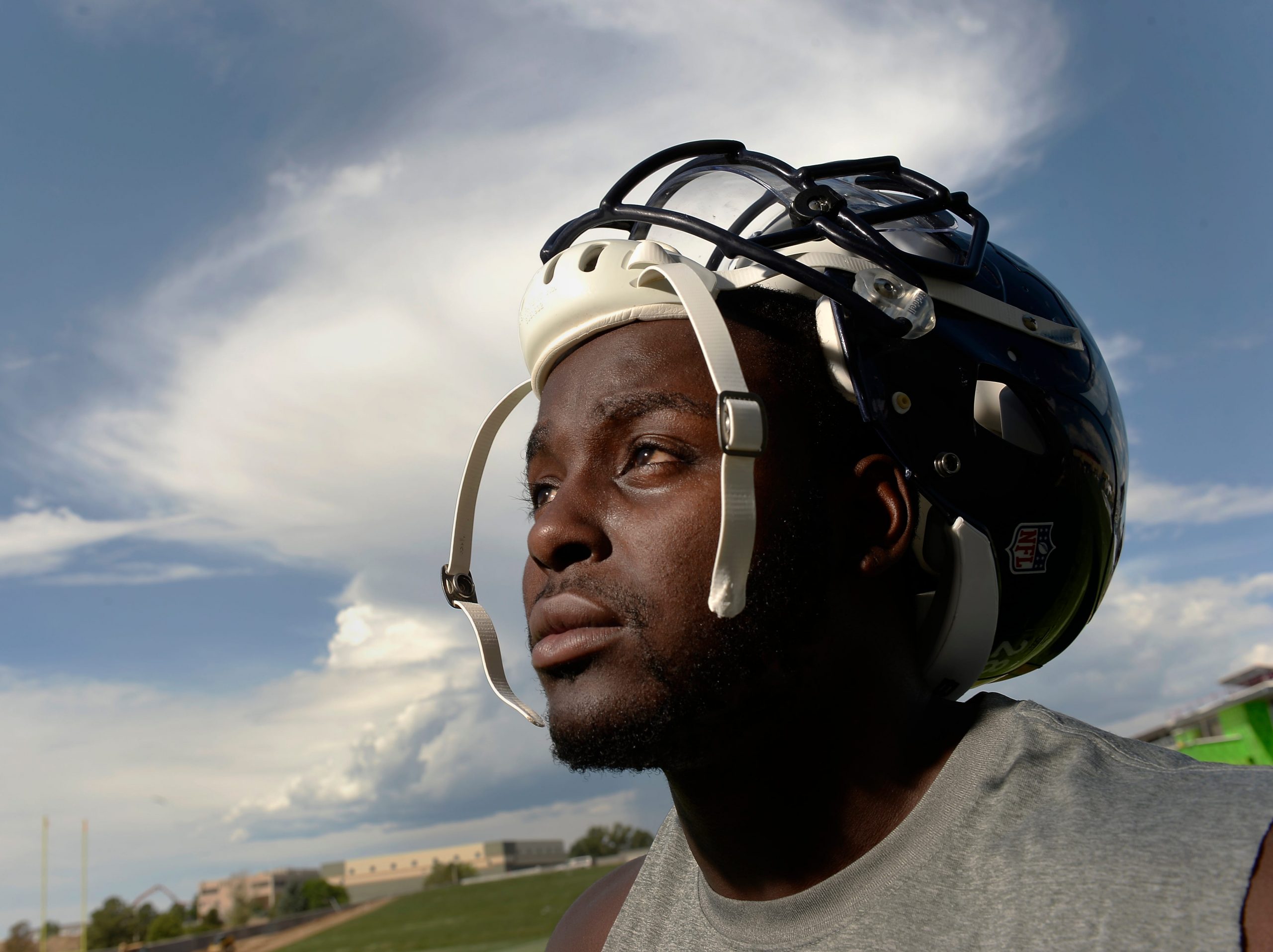
- Former NFL player Montee Ball has spent the last few years helping people struggling with addiction.
- Ball says alcohol addiction cost him his own NFL career in 2015.
- Ball uses his own story as an example for others.
- Visit Insider's homepage for more stories.
Montee Ball remembers the day he could have changed the course of his career.
The Denver Broncos' running backs coach, Eric Studesville, smelled the alcohol coming from Ball's body during practice, then confronted him kindly, in private.
"He pulled me to the side and asked me if I needed any help, any resources," Ball told Insider. "And I told him no."
Alcoholism cut Ball's career short soon thereafter: He fell out of the NFL after just two seasons in Denver and a brief stint on the New England Patriots practice squad in 2015. Six years later, he's working to ensure that as few people as possible miss the opportunity he did back then.
Ball has become a key figure in three programs dedicated to recovery and social work. He's an outreach specialist for Wisconsin Voices for Recovery, a board member for The Wisconsin Family Based Services Association, and an inclusivity caucus member for The Recovery Advocacy Project.
He also hosts a podcast called "Untapped Keg" with his brother-in-law, RJ Zimmerman, which highlights the experiences of people overcoming addiction and other mental-health issues.
"For the entire part of my drinking life, I wasn't being honest with myself," Ball said. "But by being honest with myself, but reaching out for help, by sticking with my therapy, it feels that I am the most free, that burden has been lifted off my shoulders."
The college experience was a curse for Ball and still is for others
In college at the University of Wisconsin, Ball was a two-time consensus All-American and a Heisman Trophy finalist in 2011.
He was drafted by the Broncos in the second round of the 2013 draft. As a rookie, he joined Peyton Manning on Denver's record-setting 2013 offense and appeared in Super Bowl XLVIII.
But the Broncos released Ball after the 2014 season, and he failed to make New England's roster in 2015. Then in February 2016, he was arrested on charges of a felony battery against his girlfriend at the time. The charge was later reduced to a misdemeanor, according to The Wisconsin State Journal.
"The straw that broke the camel's back was obviously the domestic-violence situation," Ball said. "When I landed in jail ... in my head I'm like, 'Okay, I've never done anything like this, what is going on with me?' And that pushed me over the edge in a good way to go to therapy."
Ball said he was exposed to unhealthy drinking at a young age due to his father's habits, and his own habits surfaced during his college years at Wisconsin.
"I was drinking a lot in college, but still in the back of my head, I was like, 'Okay, everybody's drinking a lot here in college,' which doesn't make it any better," Ball said. "When you're in the throws of it, you are really thinking that you don't have a drinking problem because you're partying like the other athletes, the other students. You're partying with parents of the students!"
For that reason, Ball now places a heavy emphasis on helping college students struggling with addiction. According to a survey by the National Institute on Alcohol Abuse and Alcoholism, 9% of full-time college students ages 18 to 22 meet the criteria for alcohol use disorder, and over 33% engage in binge drinking monthly.
Ball's drinking habits didn't hinder his college football career - he became one of the nation's best running backs. But the situation changed when he got to the NFL.
"I almost wish I wasn't as productive in college because I would have then noticed that red flag," Ball said. " And they didn't talk about mental health 10 to 15 years ago. It was not talked as much about now, not as much as it should be."
While Ball was in college, Wisconsin did have a program aimed at helping students overcome addiction and other mental-health problems. But it was small and Ball didn't know the program existed at the time. Now, he has gotten involved with it; the program, called Badger Recovery, currently includes about 40 or 50 students.
In a lecture at one of the program's meetings, Ball shared his personal story and discussed resources he can offer current students. No student athletes were at the meeting, though, Ball said.
"My focus right now is not just on athletes, although I want to help athletes - it's now just for the entire public," he said.
Communities of color are another major focus for Ball
Ball is also a member of The Overdose Day-to-Day Action Grant, which focuses on providing educational resources about addiction to communities of color.
According to the American Addiction Centers, Black Americans are less likely to have a substance use disorder with an illicit drug or alcohol than white Americans. But Ball said his firsthand experience has shown him that in Black communities, mental-health issues are less discussed and less documented than in white communities.
"In the African-American culture and even the Latinx communities, we don't preach, we don't talk about mental health. We don't talk about any of that." Ball said.
Among Black adults who do have diagnosed mental illnesses, binge drinking, smoking, illicit drug use, and misuse of prescription pain killers are more common than among white adults, according to the Substance Abuse and Mental Health Services Administration.
That's one of the trends Ball hopes to fight.
"The goal is just to continuously spread awareness and provide these resources and education on surrounding the stigma that surrounds, you know, reaching out for help and seeking help," he said.